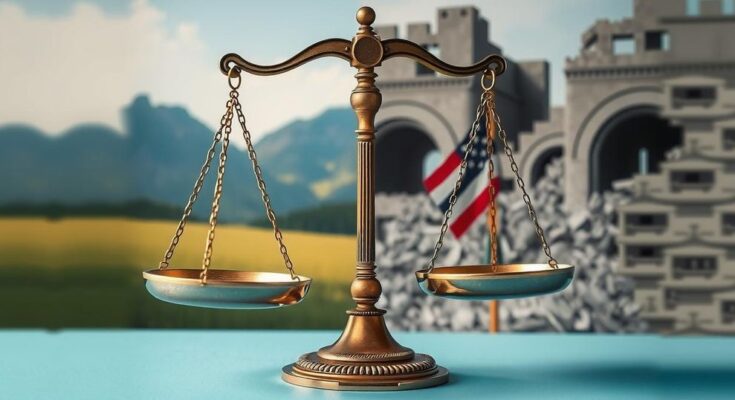The RSF is establishing a parallel government to gain diplomatic legitimacy and access weaponry, amidst an ongoing conflict with the army, raising concerns about prolonging the civil war. Supporters claim the army pursues divisive tactics and the RSF aims for international recognition to mitigate violence. The U.N. and U.S. express concern over Sudan’s stability as both sides bolster their military capabilities, while an alliance with the SPLM-N aims for a secular and inclusive governance model.
Sudan’s Rapid Support Forces (RSF) are establishing a parallel government to gain diplomatic legitimacy against its army-led adversary and access advanced weaponry, as reported by politicians and paramilitary sources. This initiative comes amidst ongoing conflict that has seen the RSF lose ground, raising concerns about the prolonged civil war and potential fragmentation of Sudan.
The army, which has maintained significant international recognition despite recent setbacks, has had to relocate its governance to Port Sudan due to the conflict’s intensity. In an attempt to assert its political legitimacy, the RSF recently signed a political charter in Kenya with various political factions and armed groups, asserting its intention to create a “Government of Peace and Unity” within Sudan in the coming weeks.
Individuals involved in the Nairobi negotiations labeled the army government as divisive, claiming it has employed tactics such as airstrikes and barriers to humanitarian aid while rejecting reconciliation talks. Al-Hadi Idris, head of one armed faction, stated, “We are not a parallel government and we are not a government in exile, we are the legitimate government.” Another supporter, Ibrahim al-Mirghani, emphasized the need for international recognition by securing peace and stability.
The existing government based in Port Sudan, backed by nations including Egypt, still holds membership in various international organizations despite a suspension from the African Union following the 2021 coup that disrupted the transition to civilian rule. Experts note that the RSF’s new governance could facilitate control over humanitarian assistance, access to arms markets, and leverage in future peace negotiations, as both factions receive military support, including drones and advanced weaponry.
Idris defended the RSF’s aims, indicating that acquiring arms is essential for protecting citizens, and denied thoughts of establishing a government for weapon importation. The army has rebuffed accusations of obstructing aid or targeting civilians, denouncing the RSF’s charter as a means of escalating conflict while they are currently faltering. The U.N. has expressed concerns over Sudan’s unity and stability, while the U.S. labeled the RSF’s actions as detrimental to peace efforts, imposing sanctions on leaders from both the army and RSF due to the humanitarian crisis stemming from the war.
In recent developments, the army has pushed the RSF out of considerable areas in the capital and central Sudan. Concurrently, the RSF, maintaining control over most of the Darfur region, continues its fight for dominance, particularly in North Darfur, where the SPLM-N group has allied with them. This surprising partnership aims to establish a secular and inclusive national framework, as articulated in their newly signed charter, envisioning a federalist “New Sudan.”
The SPLM-N leaders highlighted that this alliance is instrumental in reaching a lasting peace after prolonged tribal conflicts, allowing them to confront longstanding adversaries within the army, known for its Islamist affiliations. The collaboration not only pursues ideological goals but also facilitates access to essential resources, financial support, and arms replenishment, vital for ongoing efforts against their opponents.
In summary, the RSF’s formation of a parallel government represents a significant shift in Sudan’s political landscape, aiming to challenge the legitimacy of the army-led government while seeking advanced military support. The implications of this move could exacerbate the ongoing conflict and lead to further fragmentation of the nation, amidst a backdrop of international scrutiny and competing power dynamics among various factions. With continued violence and humanitarian crises resulting from the war, the potential for peace remains tenuous, dependent on the evolving strategies and alliances among Sudan’s political actors, further complicating the quest for stability and governance in the region.
Original Source: www.usnews.com




